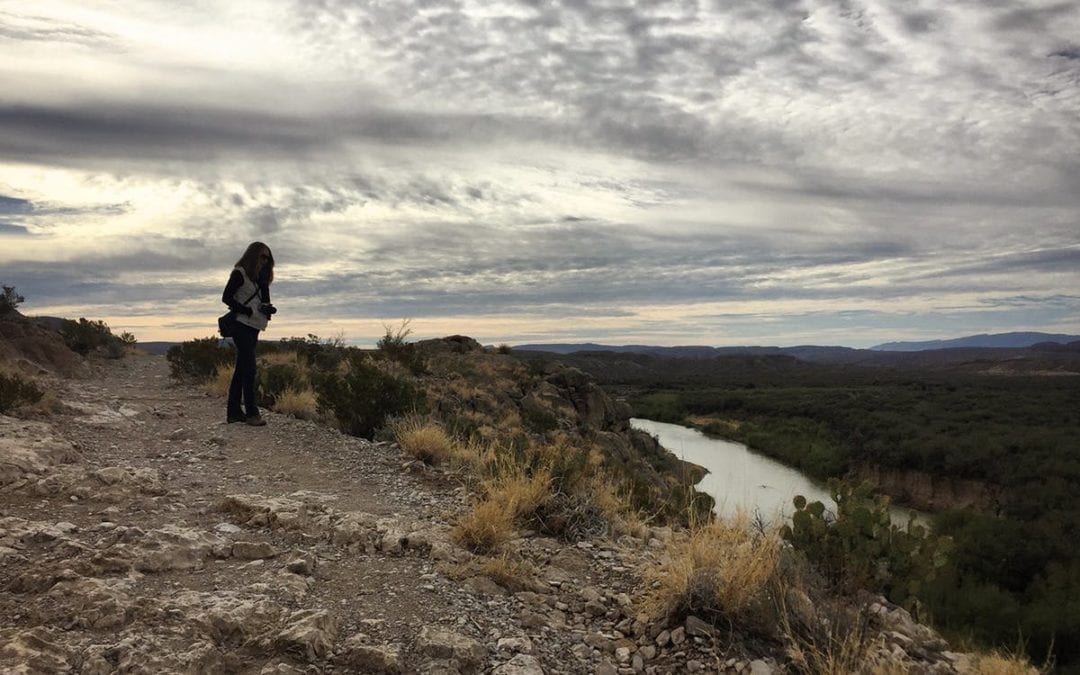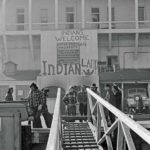Earlier this month, I went shopping at H-E-B and bought more food than I needed. But I wasn’t stocking up my bunker; I was buying supplies for a camping trip at Big Bend National Park. Back then—a whole couple of weeks ago—the new coronavirus still felt relatively abstract. I was planning to spend spring break with my boyfriend, a teacher, under the West Texas stars, hiking along the Rio Grande, and climbing the classic South Rim trail to gaze at the dusty Chihuahuan Desert as it rolls into Mexico.
Even as Austin, where I live, slowly shut down, canceling South by Southwest and implementing new restrictions, we still planned to point the car west. Social distancing would surely be easier in remote Brewster County. But, then, things changed quickly. Last week, I read an article in Courthouse News Service in which Ekta Escovar, because of concerns the hospital could be overwhelmed by a coronavirus outbreak.
“We’re already maxed out on a lot of our capabilities, and when we bring the outbreak into that picture, that’s really going to take a toll,” Escovar said.
We canceled the trip.
Now spring break is here and I am still home, working and wondering if I have shortness of breath, or just anxiety, as I worry about family living in Kirkland, Washington, one of the coronavirus epicenters in the U.S. I’ll probably text my friends a few grim news headlines. Later, I’ll change out of my daytime pajamas into my evening pajamas and treat myself to a beer from the bunker. With no desert sky overhead, we will gather around the glow of my computer to finally watch a new show called The Sopranos.
I started wondering: What, exactly, are the ethics of visiting public parks right now? Parks officials seem to be grappling with this question as well. Though there has been no statewide mandate to close parks in Texas, some have taken the initiative to do so anyway. The city of Galveston is . Visitor centers at Lower Colorado River Authority (LCRA) parks in Central Texas are already closed to protect visitors and staff from the coronavirus, and starting March 23, all LCRA parks . Squaw Creek Park near Granbury, which is owned by electric utility Luminant, due to the coronavirus outbreak. As of Thursday, Huntsville State Park and Pedernales Falls State Park and all campers have to leave. In a statement, Pedernales Falls said that though there have been no confirmed or presumed COVID-19 cases in the park, staff can’t ensure the safety of visitors and staff right now. , Texas state parks closed all park headquarters, visitor centers, and park stores to the public “for the foreseeable future.”
“While we have worked hard to provide access to state parks through much of spring break, we have now reached a point where changes are imperative for safety reasons,” Carter Smith, executive director of the Texas Parks and Wildlife Department, said in a statement. Visitors are encouraged to use self-pay stations or make reservations online with credit cards instead of cash. Equipment rentals and interpretive programs are suspended.
But in general, Texas state parks and national parks remain open—at least for now.
Whether that means people should visit them is less clear. The outdoors are an obvious respite for those of us practicing social distancing, self-isolation, and quarantine; the mental health benefits of spending time in nature . But are we putting ourselves and others at risk by enjoying the many parks scattered around the state?
The state parks department that has a connection to someone with a confirmed case of COVID-19. But in a March 13 email to visitors, the agency wrote that “outdoor spaces are well-suited to increased social distance” and suggested ways that park patrons can stay safe, such as packing extra soap and hand sanitizer.
The National Park Service, meanwhile, individual park superintendents can close facilities and cancel programs to respond to the spread of coronavirus. At Big Bend, though individual campsites and the park’s Chisos Mountains Lodge and restaurant remain open, all visitor centers are shuttered, the restaurant is focusing on takeout meals, and group sites are closed. Thomas VandenBerg, Big Bend’s chief of interpretation, told Texas Monthly on Tuesday that even though , sites are full, “with more people arriving every day.”
As of Wednesday, there were still sites to set up a tent at state-owned Big Bend Ranch State Park, and some people hope it’ll stay that way. , a nonprofit that supports the park, this week that it was “strongly discouraging” people from visiting.
“Please postpone any planned trips,” the post said. “An outbreak would overwhelm our already limited medical services.”
Marilyn Felkner, a doctor of public health and a clinical assistant professor at the University of Texas at Austin, said whether it’s a good idea to visit a park right now depends—on age, underlying conditions, and even proximity. Though COVID-19 doesn’t have a rapid onset, she suggests that people ask themselves a question: do you want to be in a situation where you potentially couldn’t return home to get the care you need?
Before traveling, she recommends checking with parks officials. Texas Parks and Wildlife, which did not respond to Texas Monthly’s questions about the coronavirus, is coordinating its message with the Department of State Health Services. The National Park Service is during the pandemic. Felkner also advises people to listen to medical professionals in the region where the park is located.
“They know their medical capacity,” she said.
Jess Thayer, a mechanical engineering graduate student at Marquette University in Milwaukee, was at Big Bend National Park for the first time last week. It was her spring break and she had been planning to go to Switzerland but aborted the trip as uncertainty amid the coronavirus outbreak swelled. Instead, she and two friends embarked on a road trip from Wisconsin to Texas, stopping at and in New Mexico. In Texas, they visited and Big Bend, where they spent 36 hours with limited cell service—long enough to escape the increasingly alarming news around the coronavirus pandemic.
But not long after they left Big Bend, they discovered their inboxes were crowded with emails about work-from-home orders and self-quarantine. If this week had been their spring break, Taylor said, they would have canceled their trip.
“You’re not just going to the park,” she said. “You’re stopping in little towns, maybe Marfa, maybe it’s Van Horn, you’re filling up gas, buying groceries, and you’re traveling from other places where you could’ve gotten the virus and so you’re bringing potentially harmful things to communities where health care infrastructure isn’t the same as big cities.”
Donna Giffin and her family are taking precautions before they depart for Big Bend on Thursday. Giffin, a teacher who lives in Dripping Springs, has been planning this trip with her husband, four adult children, and their significant others for two months. They’ve all been in self-quarantine, and they’re cooking and bringing their own food to the house they’ve rented. They’re also packing cleaning supplies to disinfect the space before they settle in.
“We just want to go out there, look at the sky at night,” she said. “We’re not going to get close to anybody.”
This content was originally published here.





